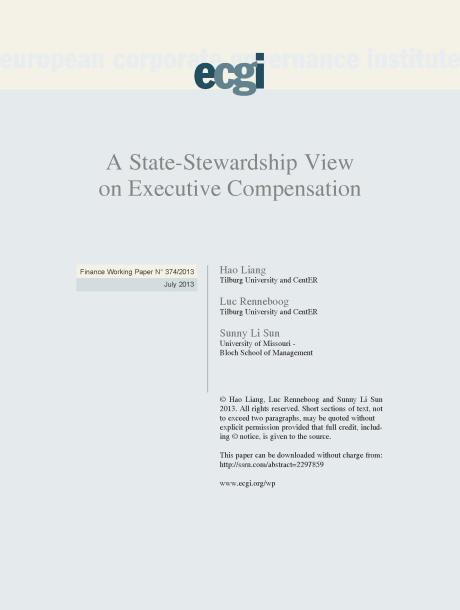
A State-Stewardship View on Executive Compensation
Abstract
We take a state-stewardship view on the corporate governance model and executive compensation policies in economies with strong political involvement. In such a highly politically-oriented institutional environment, the business elites are not just professional managers but are also de facto government officials who are directly state-appointed ? even in ?private? firms. They are expected to act as responsible ?stewards? of the state. Consequently, their compensation may differ from what agency theory predicts. We test this state-stewardship view on China and find that Chinese managers are remunerated not for maximizing equity value but for increasing the value of the state-owned assets. Managerial compensation depends on political connections and prestige, and on the firms? contribution to political and macroeconomic goals and the officials? political achievements. These effects were somewhat weakened since the governance reform of 2006, when companies became more market-oriented though state influence still prevails. In a social welfare perspective, the compensation of state-steward managers stimulates not the maximization of shareholder value but the preservation of the state?s interests.







